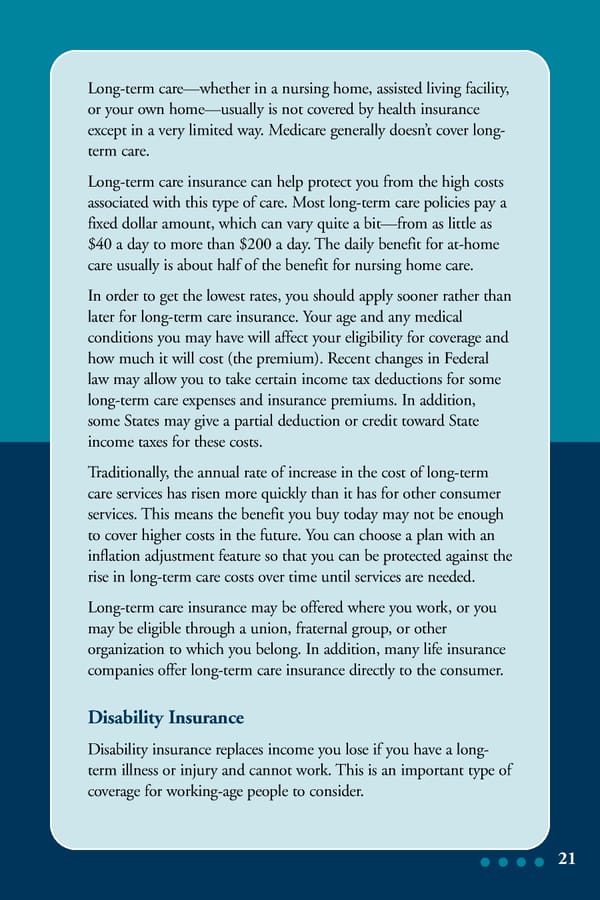Long-term care—whether in a nursing home, assisted living facility, or your own home—usually is not covered by health insurance except in a very limited way. Medicare generally doesn’t cover long- term care. Long-term care insurance can help protect you from the high costs associated with this type of care. Most long-term care policies pay a fixed dollar amount, which can vary quite a bit—from as little as $40 a day to more than $200 a day. The daily benefit for at-home care usually is about half of the benefit for nursing home care. In order to get the lowest rates, you should apply sooner rather than later for long-term care insurance. Your age and any medical conditions you may have will affect your eligibility for coverage and how much it will cost (the premium). Recent changes in Federal law may allow you to take certain income tax deductions for some long-term care expenses and insurance premiums. In addition, some States may give a partial deduction or credit toward State income taxes for these costs. Traditionally, the annual rate of increase in the cost of long-term care services has risen more quickly than it has for other consumer services. This means the benefit you buy today may not be enough to cover higher costs in the future. You can choose a plan with an inflation adjustment feature so that you can be protected against the rise in long-term care costs over time until services are needed. Long-term care insurance may be offered where you work, or you may be eligible through a union, fraternal group, or other organization to which you belong. In addition, many life insurance companies offer long-term care insurance directly to the consumer. Disability Insurance Disability insurance replaces income you lose if you have a long- term illness or injury and cannot work. This is an important type of coverage for working-age people to consider. 21
 Health Insurance Q&A Page 24 Page 26
Health Insurance Q&A Page 24 Page 26